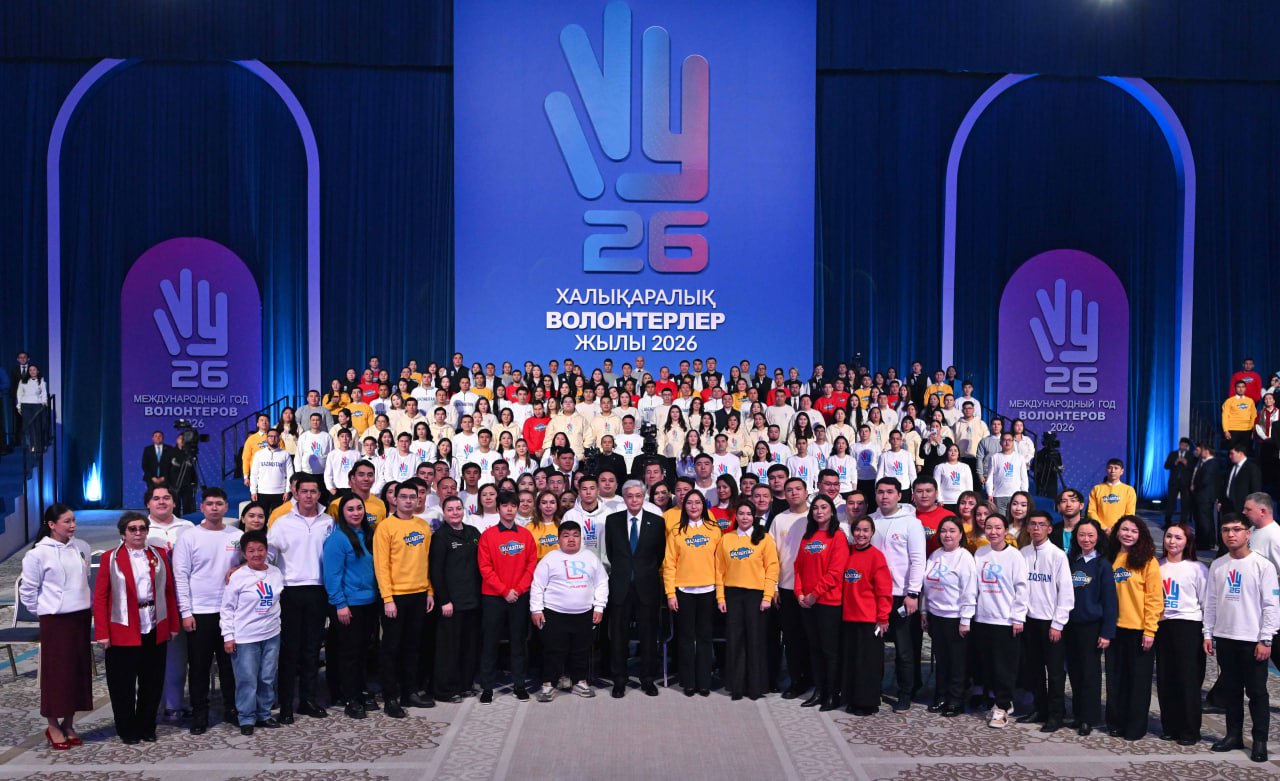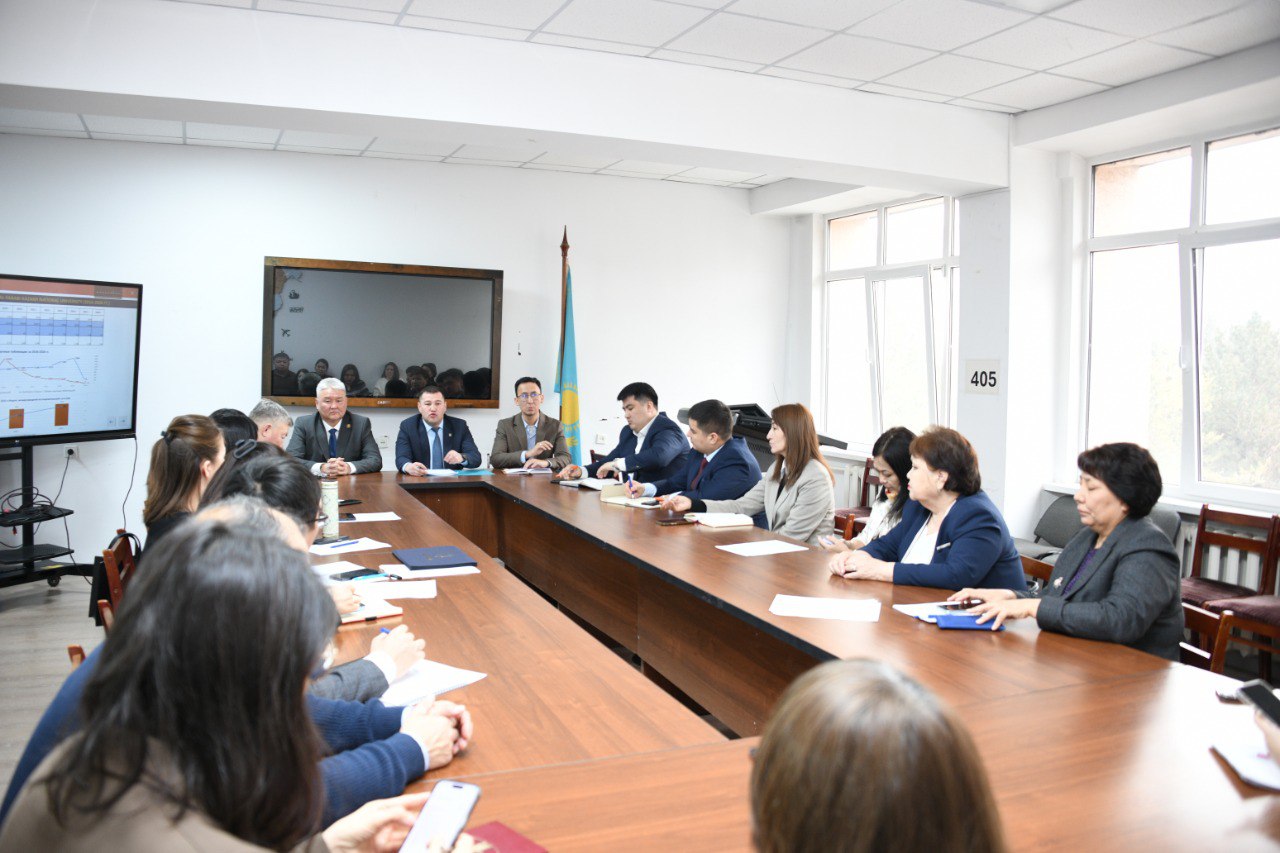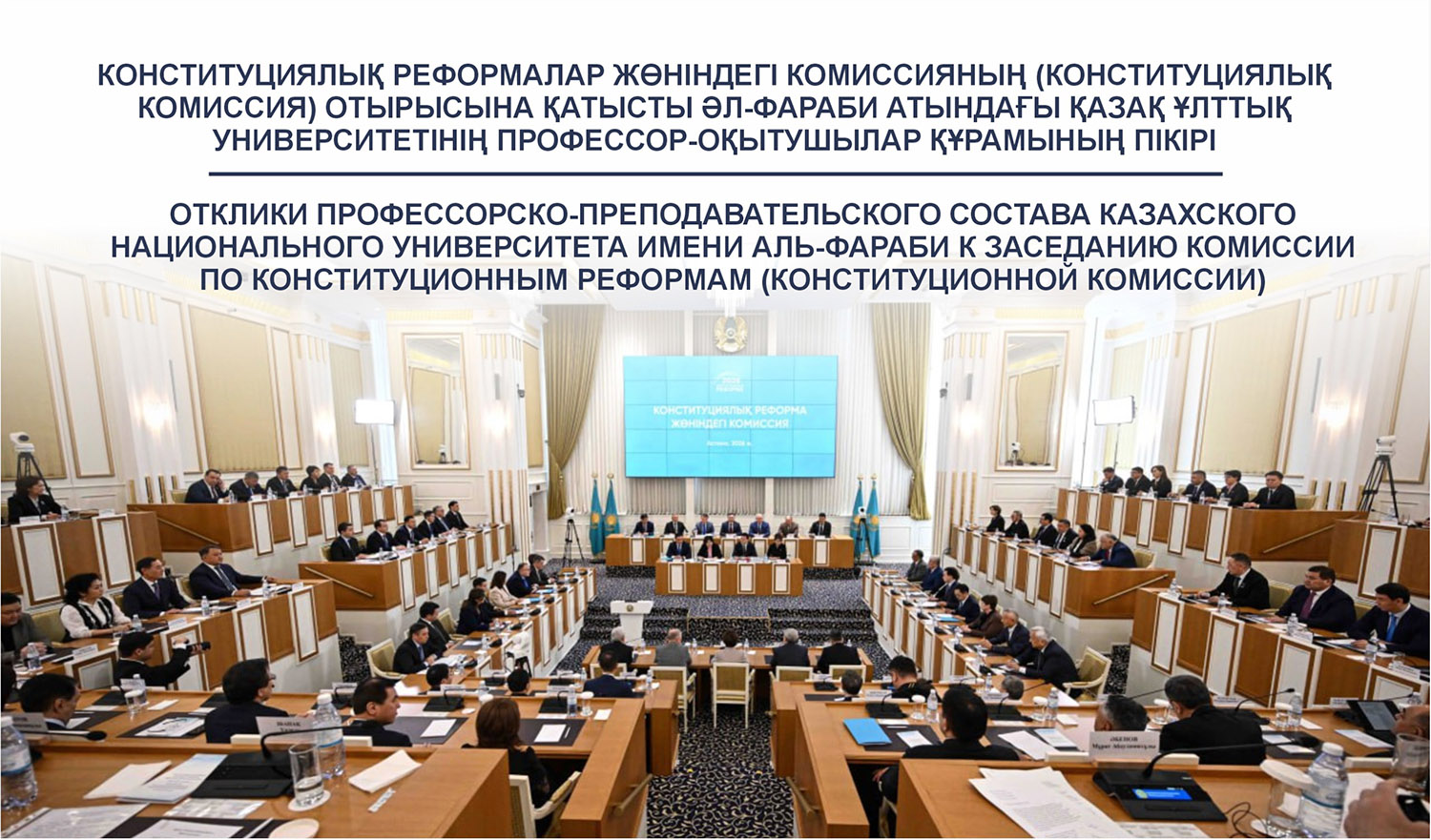- Main
- News
- "Modern Russian prose in Kazakhstan: leading trends, genre, plot, hero (based on the works of Aslan Zhaksylykov)"
"Modern Russian prose in Kazakhstan: leading trends, genre, plot, hero (based on the works of Aslan Zhaksylykov)"
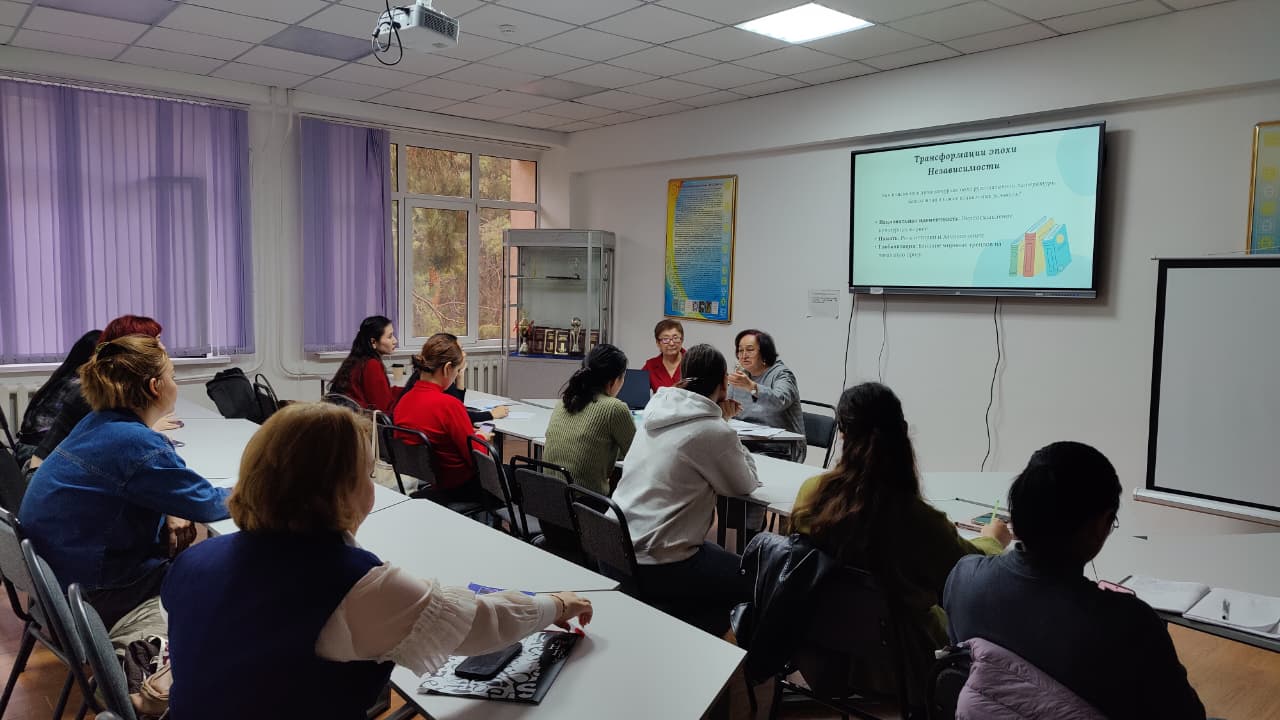
On October 25, 2025 the seminar on the topic: "Modern Russian prose in Kazakhstan: leading trends, genre, plot, hero (based on the works of Aslan Zhaksylykov)" was held in an offline format. The event was organized by the Department of Russian Philology and World Literature of the Al-Farabi Kazakh National University. The purpose of the seminar was to discuss the main artistic, genre and philosophical features of Aslan Zhaksylykov's prose, to understand its role in shaping the modern cultural code of Kazakhstan, its spiritual and identification guidelines.
The moderator of the seminar noted that the figure of Aslan Zhaksylykov occupies a special place in the Russian-language literature of Kazakhstan. His work combines the rational principles of the Western philosophical tradition and the metaphysical depth of Eastern spirituality, addressing the issues of human inner development, its connection with the world and history.
During the seminar, the participants, among whom were doctoral students of the department, discussed a number of key aspects of the writer's prose. Special attention was paid to the novel "Singing Stones", which, as noted by Zere Mezgilbayeva, reveals the spiritual path of a person striving for harmony with himself and the universe. The participants in the discussion emphasized the symbolic significance of the stone depicting Yin-Yang as a metaphor for the balance of opposites and the eternal movement of the spirit.
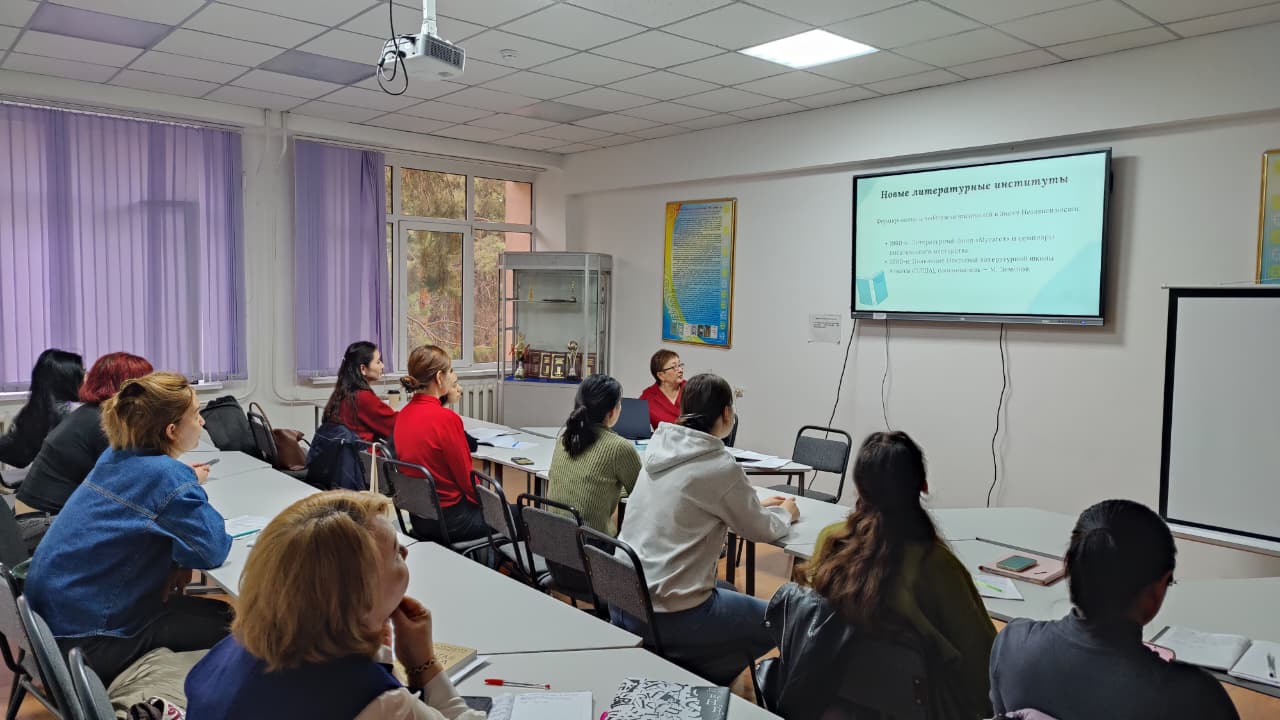
The conversation continued with a discussion of Aslan Zhaksylykov's essays. Banu Maulenova's report suggested that the writer's concept of love is not related to the sensual sphere, but to a higher spiritual experience close to the Sufi understanding of the path of knowledge. Comparing Zhaksylykov's essay with the works of Russian thinkers of the 20th century, such as Berdyaev and Rozanov, allowed the participants to note the similarities in the interpretation of the concepts of beauty, spirituality and freedom.
Of particular interest was the story "Window to the Steppe", presented in the analysis of Aigul Isaeva. The speaker highlighted the musicality and poetry of the text, emphasizing the role of the steppe as a symbol of inner freedom and the space of revelation. During the discussion, Assel Kundakhbayeva suggested considering the story as a "poem in prose", where lyricism is combined with philosophical contemplation.
The theme of Kazakhstan as a cultural and spiritual space was voiced in the speech of Yesenkeldi Kasymkhan. He noted that Zhaksylykov's image of Kazakhstan goes beyond the geographical dimension and becomes a metaphysical concept that combines memory, myth and national identity. In the discussion, the idea of the postnationality of the writer's prose was voiced, which consists in striving for universalism while preserving the national code.
Didar Bildebayeva's report examined the evolution of the hero in Zhaksylykov's works. It is noted that in the early texts the hero appears as an archetypal wanderer, and in later works – as an existential personality, aware of his responsibility to the world. The writer's character goes from a victim of history to a spiritually awakened person capable of inner transformation.
At the end of the seminar, Gulzhan Unasbayeva addressed the issue of genre and style unity of Zhaksylykov's prose, emphasizing that the writer freely combines elements of a novel, a novella, an essay and a philosophical parable. In the discussion, the term "Kazakh metaphysical realism" was proposed as the most accurate definition of the aesthetics of his works, combining symbolism, allegory and journalistic reflection.
Summing up the seminar, the participants came to the conclusion that Aslan Zhaksylykov's prose is a unique phenomenon in the Russian-language literature of Kazakhstan. It reflects a synthesis of national and universal ideas, a combination of Eastern spirituality and Western analytical thinking. The hero of his works embodies the image of a modern man searching for meaning, truth and inner harmony. It is noted that Zhaksylykov's work contributes to the formation of a new model of Kazakh identity – open, creative and metaphysically oriented.
The seminar was held in an atmosphere of lively and interested scientific communication. The participants expressed their gratitude to the organizers and noted the importance of such events for the development of modern literary studies. Following the discussion, it was decided to prepare a collective scientific article based on the seminar materials for publication in the KKSON journal.
